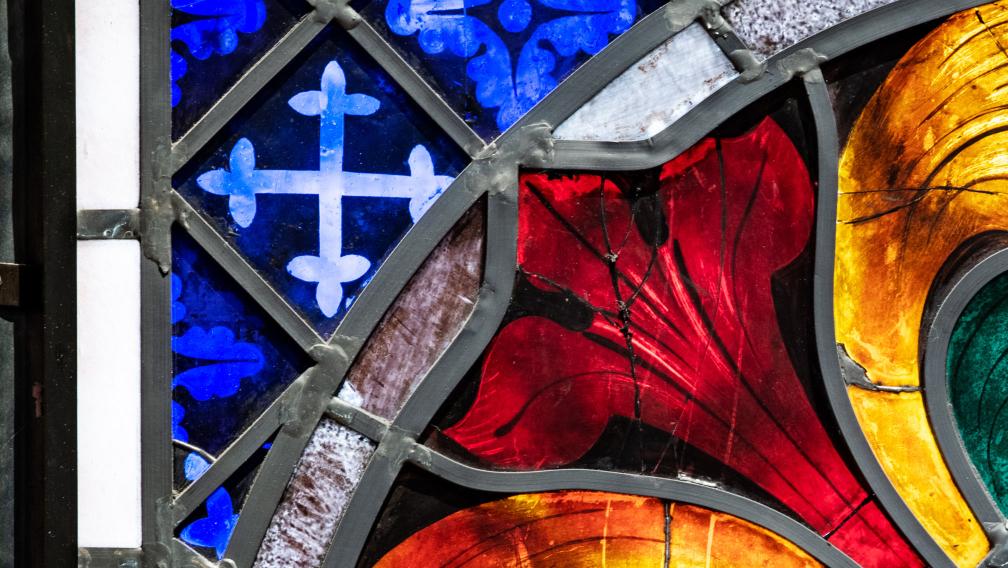Five Ways Into Sunday’s Scripture: Breaking All The Rules

Jesus came to a Samaritan city called Sychar, near the plot of ground that Jacob had given to his son Joseph. Jacob’s well was there, and Jesus, tired out by his journey, was sitting by the well. It was about noon.
A Samaritan woman came to draw water, and Jesus said to her, “Give me a drink.” (His disciples had gone to the city to buy food.) The Samaritan woman said to him, “How is it that you, a Jew, ask a drink of me, a woman of Samaria?” (Jews do not share things in common with Samaritans.) Jesus answered her, “If you knew the gift of God, and who it is that is saying to you, ‘Give me a drink,’ you would have asked him, and he would have given you living water.” The woman said to him, “Sir, you have no bucket, and the well is deep. Where do you get that living water? Are you greater than our ancestor Jacob, who gave us the well, and with his sons and his flocks drank from it?” Jesus said to her, “Everyone who drinks of this water will be thirsty again, but those who drink of the water that I will give them will never be thirsty. The water that I will give will become in them a spring of water gushing up to eternal life.” The woman said to him, “Sir, give me this water, so that I may never be thirsty or have to keep coming here to draw water.”
John 4:5–15
This week’s Gospel story is the second in a series of Jesus and unusual conversation partners. Last week, we encountered Nicodemus — a member of the Pharisee sect that opposed Jesus’ teachings — talking to Jesus in the middle of the night so he would not be seen. This week, we have Jesus and the Samaritan woman at the well — again alone together. Talking alone is something that unrelated men and women would not do during those times. And she is a Samaritan, a people despised by the Jewish people. Jesus asks her for water from her bucket, even though it would be ritually unclean for Jews and Samaritans to share. All sorts of rules are being broken in this encounter.
The passage also offers clues about the woman. She comes alone to the well in the middle of the day, when typically women would go together in the morning because it was safer and cooler. Scholars note this may be a sign she was ostracized by her community because of her marital history (although it is likely her domestic relationships were dictated by the traditions of society and not her preferences or actions). We can imagine this was a source of difficulty and pain in her life.
Jesus goes on to tell her that “God is spirit, and those who worship him must worship in spirit and truth.” He reveals to her that he is the Messiah. She shares this Good News with her community, and Jesus stays with the Samaritans for two days.
When it comes to Good News, it is not who you are, where you come from, or what you’ve done or not done in your life that matters. We can come as we truly are, bringing to God all the pain, joy, and wonder of our lives and our world. In this season of Lent, we are invited to bring to God all that we do not want to be seen or known and we, too, can receive living water. Water that will become in us a spring of water gushing up to eternal life.
—Ruth Frey
SOCIAL JUSTICE
Dan Clendenin notes that “John 4 subverts and reverses conventional human wisdom and power relations.”
THEOLOGY
Jaime Clark-Soles observes “the more [the Samaritan woman] engages Jesus from her theologically educated and committed faith, the deeper her understanding of him becomes.”
VISUAL ART
This painting by Giovanni Francesco Barbieri depicts Jesus and the Samaritan woman in deep conversation.
POETRY
The poem “All Thirst Quenched” by Lois Red Elk powerfully describes how life springs forth from the dry land when water returns.
MUSIC
Who wouldn’t want to be part of this Eternal Life dance party??
Get the Five Ways In Your Inbox
Sign up to receive reflections and updates from the Faith Formation & Education team.
Coming Soon
This Sunday at 10am, theologian and poet Pádraig Ó Tuama returns to Discovery for a conversation with Dr. Peter Ajer, Professor of New Testament at the University of San Francisco.
How have African Americans throughout history utilized the Apostle Paul and his letters in their writings to protest and resist oppression? On May 5–7, join Dr. Lisa Bowens at Trinity Retreat Center for African American Readings of St. Paul, an opportunity to journey through the centuries by engaging select portions of works by Black authors who lived from the 18th to the 20th century.